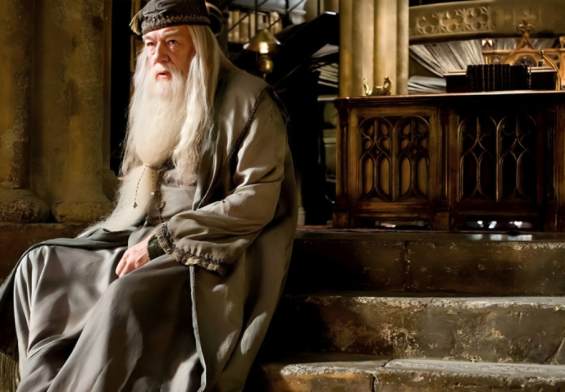
The Harry Potter series, created by J.K. Rowling, is filled with captivating characters, magic, and intricate plots. One character that stands out, albeit in a negative way, is Peter Pettigrew, also known as Wormtail.
His betrayal of James and Lily Potter is one of the most shocking moments in the series. But why did he do it? What drove him to betray his friends?
In this article, we will delve into the mysteries surrounding Pettigrew’s actions, explore his character, and examine the reasons behind his infamous betrayal.
Recommended for You:- The Goblet of Fire: Was It a Trap for Harry?
- Was the Chamber of Secrets Built to Protect Harry? Find Out!
- Shocking Truth: How Dementors REALLY Communicate in Harry Potter!
- The Dark Secrets of Ollivander’s Wand Shop Exposed!
The Background of Peter Pettigrew
Peter Pettigrew was a member of the Marauders, a group of friends that includes James Potter, Sirius Black, and Remus Lupin. Together, they created mischief at Hogwarts and supported each other during their school years.
However, Pettigrew had a very different personality compared to his friends. He was often seen as timid and somewhat cowardly. While James and Sirius were known for their bravery, Pettigrew was more concerned with looking out for himself.
Why was Pettigrew so different?
- Fear-Based Character: From a young age, Peter was influenced by his fear of being bullied. He admired the stronger personalities around him, especially James and Sirius. In their company, he felt somewhat protected but also overshadowed. Over time, this dynamic led to deep-seated insecurities, making him vulnerable to manipulation.
The Moment of Betrayal
The pivotal moment in Pettigrew’s story comes when he betrays the Potters to Lord Voldemort. There are several factors that led to this betrayal, and understanding them will help us uncover why he chose such a dark path.
- Desire for Self-Preservation: Pettigrew’s primary instinct has always been survival. He believed Voldemort to be the stronger of the two sides in the ongoing war between good and evil. By aligning with Voldemort, Pettigrew thought he could ensure his safety.
- The Bullying Factor: Some fans argue that Pettigrew’s betrayal stemmed from years of being bullied by James and Sirius. While they were great friends, they often teased him. This constant mockery may have fueled his need to prove himself and seek acceptance from a powerful ally.
- Weak Moral Compass: Pettigrew’s character is marked by a lack of moral strength. He cannot stand up for what is right or wrong. This flaw allowed him to betray not just his friends but also his own values and beliefs.
- The Allure of Power: The idea of power and status greatly appealed to Pettigrew. By switching sides, he believed he could climb the ranks in a world where he previously felt insignificant. Supporting Voldemort seemed like a way to gain respect, something he always craved but never achieved among his friends.
The Aftermath of His Betrayal
After revealing the Potters’ location to Voldemort, the consequences of Pettigrew’s actions were devastating. James and Lily were murdered, and their death led to the rise of their son, Harry Potter, as the Boy Who Lived.
Pettigrew’s betrayal not only ruined the lives of his friends but also altered the entire course of the wizarding world.
Living in Hiding
To avoid the consequences of his betrayal, Pettigrew faked his own death and lived for years as Scabbers, Ron Weasley’s pet rat. This transformation serves as a powerful symbol of his cowardice.
Instead of facing his actions and accepting the repercussions, he chose to hide in plain sight, embodying the very essence of a rat.
While he hid, Pettigrew remained in touch with Voldemort’s followers. He continued to show his loyalty to the Dark Lord, demonstrating that his self-preservation instinct drove him even further into darkness.
The Complexity of Pettigrew’s Character
Pettigrew is often misunderstood. While many view him simply as a traitor, he is a character shaped by fear, insecurity, and a desperate need for survival. His journey raises important questions about loyalty and morality:
- Can fear justify betrayal?
- Is it ever acceptable to choose survival over friendship?
- How do personal insecurities impact our choices?
To further understand Pettigrew, we must consider how he contrasts with Harry, Hermione, and Ron. These characters consistently demonstrate bravery, loyalty, and a willingness to sacrifice for their friends. In stark contrast, Pettigrew’s decisions illustrate how fear can warp someone’s moral compass.
Quote to Consider:
“You’re a fool, Peter. You’re a coward.”
— Harry Potter and the Prisoner of Azkaban
A Cautionary Tale
Pettigrew’s story serves as a cautionary tale about the destructive power of fear and cowardice. If we allow our insecurities to dictate our actions, we may betray those we care about, just as he did.
His tragic life reminds us of the importance of standing firm in our beliefs and choosing loyalty over self-preservation.
The Redemption Arc: A Bittersweet Ending
Interestingly, despite his betrayals, Pettigrew is given a chance at redemption. In his final moments, he chooses to save Harry, albeit in a moment driven by fear of Voldemort. This decision adds complexity to his character, showing that even those who falter can find moments of bravery.
Why does this matter?
- It underscores the theme that everyone has the potential for redemption, even someone as flawed as Pettigrew.
- It teaches us that every choice matters and that sometimes, it’s never too late to act selflessly.
“I think we sort too soon.”
— Harry Potter and the Deathly Hallows
Conclusion
Peter Pettigrew’s betrayal of James and Lily Potter remains one of the most shocking twists in the Harry Potter series. His actions were driven by a mixture of fear, a desire for self-preservation, and a longing for power.
Through this exploration, we see how a character that started as a friend can ultimately become a cautionary tale about the consequences of cowardice and betrayal.
As readers, we learn valuable lessons about loyalty, bravery, and the choices we make in moments of fear. While Pettigrew has a dark legacy, his story reflects the complexity of human nature and the delicate balance between right and wrong.
In the end, we are reminded that even the most cowardly among us can find a sliver of hope and bravery.
By uncovering the mysteries behind Pettigrew’s betrayal, we not only gain a deeper understanding of this tragic character, but we also come to appreciate the underlying themes of the Harry Potter series—an exploration of friendship, loyalty, and the enduring battle between good and evil.



